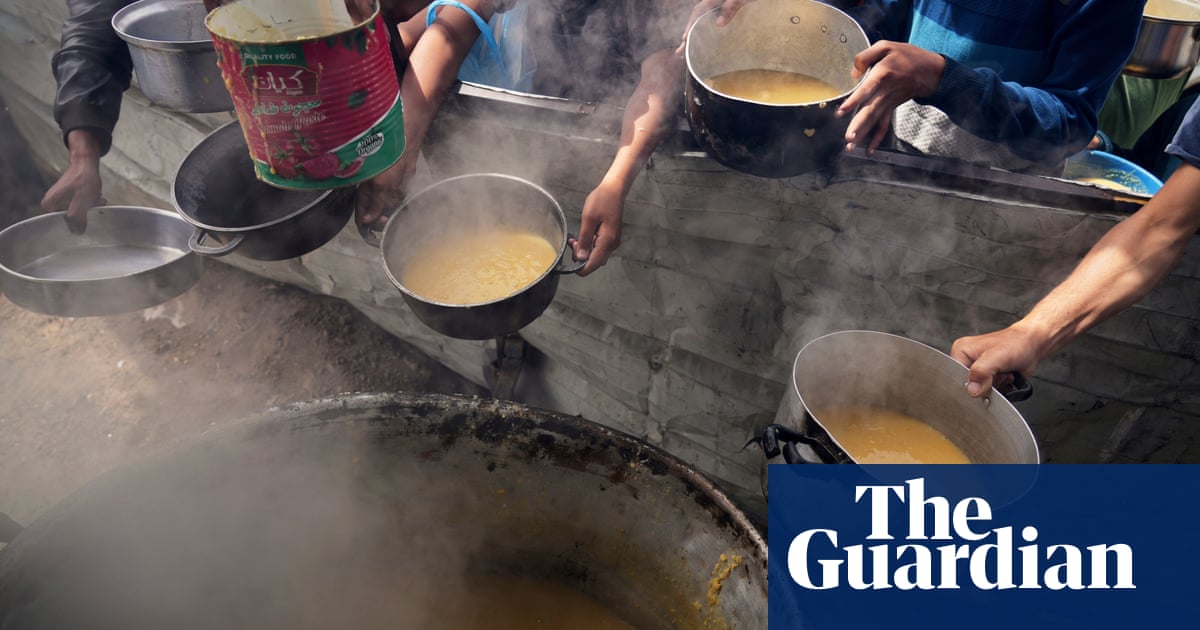Israel will come under sustained legal pressure this week at the UN’s top court when lawyers from more than 40 countries will claim the nation’s ban on all cooperation with the UN’s Palestinian rights agency Unrwa is a breach of the UN charter.
The five days of hearings at the International court of justice in The Hague have been given a fresh urgency by Israel’s decision on 2 March toblock all aid into Gaza, but the hearing will focus on whether Israel – as a signatory to the UN charter – acted unlawfully in overriding the immunities afforded to a UN body. Israel ended all contact and cooperation with Unrwa operations in Gaza, West Bank and East Jerusalem in November, claiming the agency had been infiltrated by Hamas, an allegation that has been contested.
Unrwa supplies food, schooling and medical services to 2 million people inGaza. The UN World Food Programme said on Friday it had run out of stocks for kitchens serving hot food inside Gaza. The Unrwa commissioner, Gen Philippe Lazzarini, accused Israel of engineering a human-made famine, and even US president, Donald Trump, said he has urged Israel to allow food into Gaza.
A total of 45 nations and organisations, including the UN itself, have requested an advisory opinion from the 15-strong judging panel on Israel’s actions. The only countries likely to defend Israel in court are the US and Hungary.
Israel has submitted a written defence, but is not due to make an oral submission this week.
The hearings represent the biggest test of Israel’s defiance of international law since the ICJ’s landmark rulings in January, March and June that ordered it to take immediate steps to allow aid to enter Gaza unhindered. In July 2024, the ICJ also found Israel’s occupation of thePalestinian territorieswas unlawful.
Israel has largely refused to comply with the advisory orders attached to these rulings, adding to the crisis of confidence in the credibility of the international legal system.
Palestinian rights group Al-Haq said it was “imperative” that Israel’s seat at the UN general assembly be withdrawn if Israel ignores another ICJ advisory opinion, saying the public’s faith in international law “hangs in the balance”.
The legal challenge arose from a 137 to 12 vote at the UN general assembly in December to seek an ICJ advisory opinion on whether Israel, as a signatory to the UN charter, was violating the immunities and privileges that member states are required to give to UN bodies such as Unrwa.
The agency does not just supply aid to Palestinians, but also runs medical services and schools in Gaza,West Bankand neighbouring states. Six Unrwa schools in East Jerusalem have already been shut, the subject of a separate domestic court challenge brought by Adalah, a Palestinian legal rights group.
The UN’s legal claim is backed by more than 1,500 pieces of documentation, including proceedings of the UN security council, the general assembly and UN agencies setting out Unrwa’s genesis, its status within the UN structure and its 1967 operational agreements with Israel.
The ICJ, as the UN’s top court responsible for inter-state disputes, sets store by UN findings. The UN will be represented by its new legal counsel Elinor Hammarskjöld, a Swedish lawyer and diplomat.
At issue are two Knesset bills passed on 28 October that declared Unrwa harboured terrorists, and instructed the government to end all cooperation and contact with the organisation, including the supply of visas to Unrwa international staff. It has become part of a wider Israeli threat to withhold visas to staff of NGOs that criticise Israel.
On 2 March, Israel, independently of its decision to freeze out Unrwa, suspended the supply of all aid into Gaza in a bid to crush Hamas. France, Germany and the UK last week condemned as unacceptable remarks by the Israeli defence minister, Israel Katz, linking the supply of aid to political pressure on Hamas.
In a version of the Israeli government’s defence, UK Lawyers for Israel said in a paper last week that Israel had a right to terminate its agreement with Unrwa and to ban the UN and its agencies to carry out activities on its sovereign territory, especially in wartime. Moreover, Israel is free to choose how to comply with its obligations to facilitate the provision of humanitarian aid to the Palestinian population, and is not required to do so under the auspices of Unrwa, the paper claims.
The group also claims that the ICJ does not have the capacity, or neutrality, to determine a case that largely turns on disputed facts, including whether Unrwa had been fatally infiltrated by Hamas, and whether alternatives to Unrwa such as the WFP can deliver aid.
In what looked like a shot across UN’s bows ahead of the case, the US justice department told the New York district court on Thursday that Unrwa and its staff do not enjoy immunity in the US courts, reversing the Biden administration’s view. The move, in theory,y opens the way for victims of Hamas terrorism to seek compensation from Unrwa officials.
In a measure of the existential crisis facing Unrwa, the UN has appointed a former British diplomat Ian Martin to undertake a review of the agency’s future role and finances.
